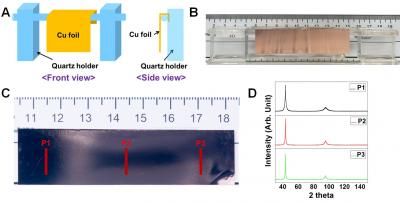New material for solid oxide fuel cells
Higher conductivity and lower coefficient of thermal expansion
Advertisement
Scientists have replaced some of the iron atoms in the composition Nd0.5Ba0.5FeO3-δ by cobalt, while simultaneously increasing the conductivity and lowering the thermal expansion of the material.
To improve conductivity through the change in the number of defects as a starting point for the study, scientists took mixed ferrite neodym and barium Nd0.5Ba0.5FeO3-δ.
To replace part of the iron, cobalt (Co), copper (Cu) and nickel (Ni) were added to the starting material. Complex oxides were obtained by evaporation of solutions and calcination of the solid residue at a temperature of 700 degrees Celsius. The thermal expansion of all mixed materials turned out to be weaker than that of the original Nd0.5Ba0.5FeO3-δ, which includes up to ten percent of the doping metals. To improve the thermal expansion, the material with copper was the best, and in the case of ionic conductivity, the best was cobalt.
A group of scientists from UrFU and Institute of High-Temperature Electrochemistry (Ural Division of the Russian Academy of Science), achieved a balance between good conductive properties and the absence of thermal expansion using cobalt.
Original publication
Most read news
Original publication
Lyagaeva, Julia and Danilov, Nilolay and Tarutin, Arthem and Vdovin, Gennady and Medvedev, Dmitry and Demin, Anatoly and Tsiakaras, Panagiotis; "Designing a protonic ceramic fuel cell with novel electrochemically active oxygen electrodes based on doped Nd0.5Ba0.5FeO3−δ"; Dalton Transactions; 2018
Topics
Organizations
Other news from the department science

Get the chemical industry in your inbox
By submitting this form you agree that LUMITOS AG will send you the newsletter(s) selected above by email. Your data will not be passed on to third parties. Your data will be stored and processed in accordance with our data protection regulations. LUMITOS may contact you by email for the purpose of advertising or market and opinion surveys. You can revoke your consent at any time without giving reasons to LUMITOS AG, Ernst-Augustin-Str. 2, 12489 Berlin, Germany or by e-mail at revoke@lumitos.com with effect for the future. In addition, each email contains a link to unsubscribe from the corresponding newsletter.

































































